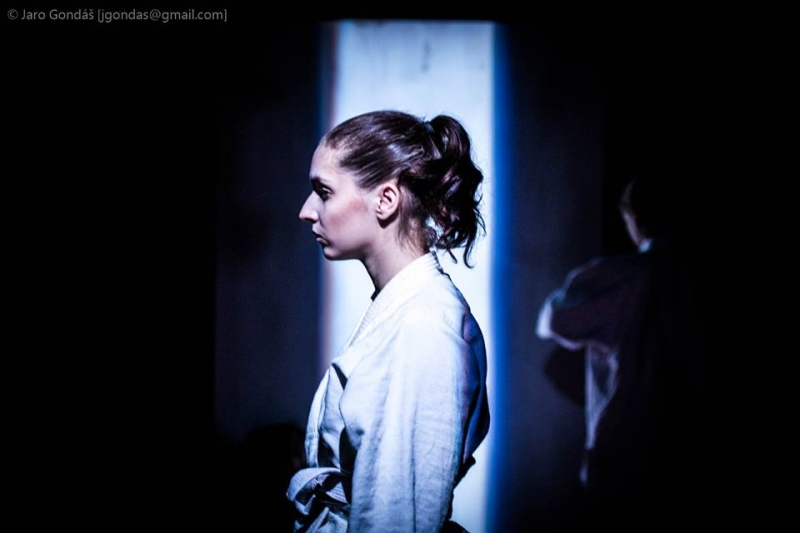- 2013.11.12. 20:00
-The notion of punishment
-The idea of the body as a desire machine sculpturing its own space
-Activity beyond control of the artist, power, transcendence through random activity
The concept of punishment in Greek antiquity
inextricably intertwined with the concept of heroism
determines the stigma of heroes through their stigmatization
making indicative of their greatness, not their acts
but their adequate punishment.
Around the triptych body-thought-space
we are searching the thread that unifies the eternal punishment in Tartarus,
the tragic Nemesis,
and the ultimate punishment of freedom beyond walls
demonstrated by the power of the performer
When we refer to ancient heroes we think of them as the lasting symbols of the human nature that remains permanently unsatisfied and incomplete.
Or sometimes, we consider them as a prefiguring of the current culture, of the modern man who is immersed in an insatiable greed and while mistakenly thinking that he has touched the stars, that has defeated the god or conquered the top of knowledge, at the end, blinded by his own power and arrogance, ends up destroying everything around him, killing his children, and finally ravaging him self by eating his own flesh.
But the punishment of the ancient heroes does not only have the dimension of a fair and adequate sentencing for the crimes that these heroes committed. Nor are these heroes one-dimensional, with only the dark side of greedy and voracious raptor who is reasonably and justifiably punished.
Let the light fall on the luminous but completely hidden part of the hero who is punished disproportionately or without blame, who suffers while he is sinless, who is imprisoned because he revealed to his fellows -just like Tantalus- a truth, who is persecuted for daring to give people the knowledge, who is considered a clandestine figure everywhere he goes and for whom the entire earth becomes a prison.
choreography/ Jozef Fruček
asistant of choreography/ Reut Aviran
music/ Vasilis Mantzoukis
lights/ Ján Čief, Jozef Fruček
dance/ Lenka Rajchmanová, Miroslava Peterská, Marie Knapová, Tibor Trulik, Jakub Jeňo


